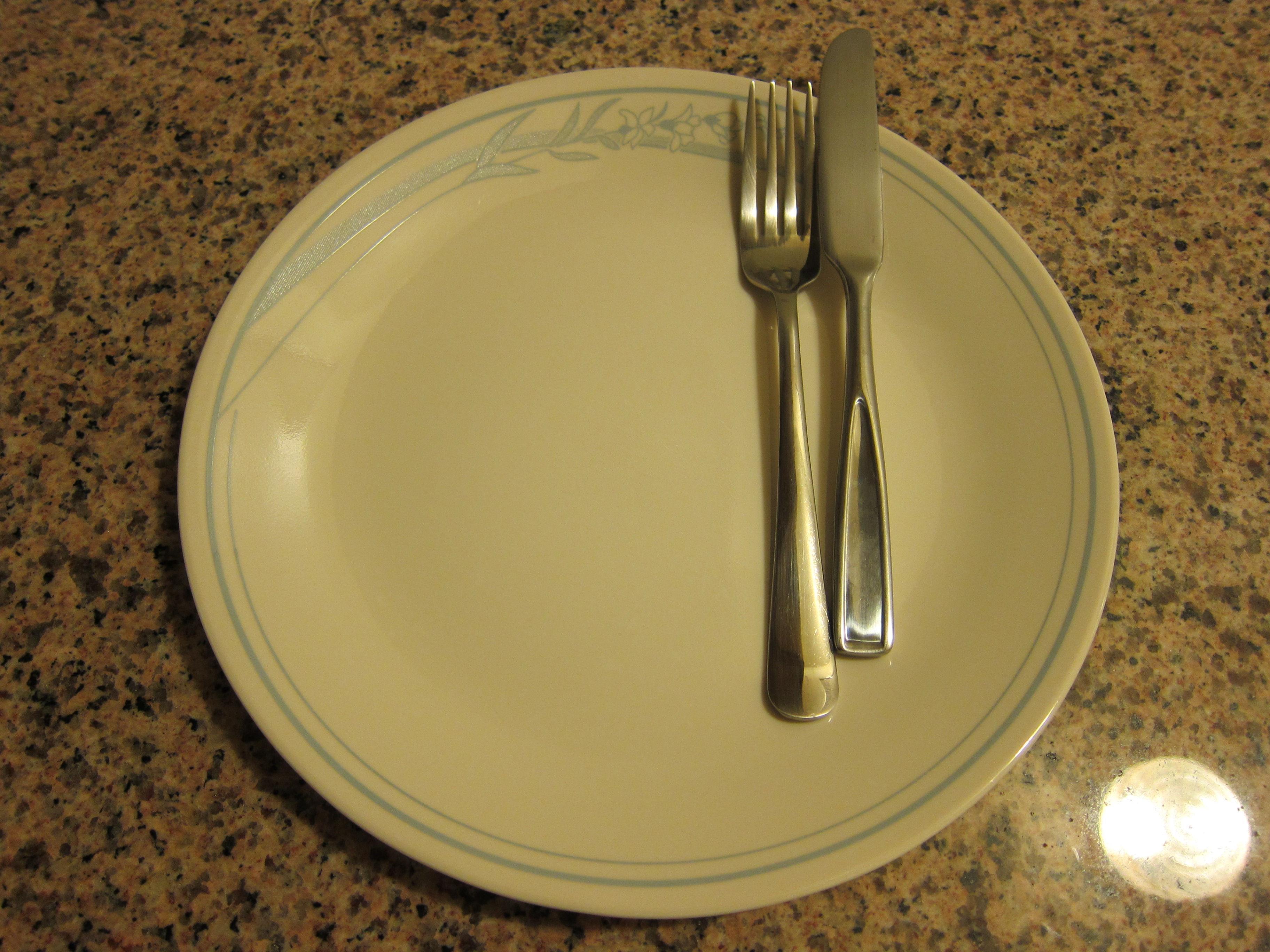I didn’t grow up eating Thanksgiving dinner, but over the years I’ve learned how to do the traditional American turkey-day right. There’s the carving of large birds, the mashing of potatoes, and of course, the skipping of lunch.
Most people I know skip lunch on Thanksgiving. We may call it “saving room for dinner,” but aren’t we really just buying caloric credits for the inevitable metabolic assault? This year, I wanted to explore the scientific evidence that either supports or debunks this holiday eating strategy.
Unfortunately, PubMed has exactly zero hits for the search term “Thanksgiving lunch.” Researchers I contacted directly or through news officers at Stanford University and UC San Francisco did not feel up to speaking on the subject of how meal timing (or skipping Thanksgiving lunch) affects metabolism.
I can imagine why some scientists might not want to touch this question with a ten-foot pole. With the Centers for Disease Control and Prevention reporting that 33.8% of American adults are obese, everyone just wants to know the simple bottom line on what we should eat, how much, and when. But biologically speaking, the human body may not lend itself to a straightforward answer.
Here’s an example. You may have heard some reports that eating breakfast could help you lose weight, while skipping breakfast could lead to weight gain.*
But consider this paper, published in The American Journal of Clinical Nutrition, in which 52 obese women, some of whom were habitual breakfast eaters and others breakfast skippers, were randomly assigned to eat or skip breakfast every day for 12 weeks. The two groups (eat versus skip breakfast) were given different sample menus to follow for the rest of the day that were matched in total calories and nutritional factors.
The confusing result: baseline breakfast eaters lost weight when they skipped breakfast every day, while baseline breakfast skippers lost weight when they ate breakfast regularly.**
What???
Obviously, it’s complicated. And as a scientist, getting large numbers of people of similar genetic makeup, with similar exercising, sleeping, and smoking habits to eat exactly what and when you tell them is also… complicated.
But getting back to skipping Thanksgiving lunch… The most interesting research paper I found, and the one most relevant to my original question, comes from the niche field of studying Muslims fasting for Ramadan.
In a study published online Nov. 13 in the Journal of Public Health, British researchers studied weight change in observant Muslims during and after the month-long Ramadan fasting period. Between Aug. 11 and Sept. 9, 2010, the 202 study subjects did not eat or drink between sunrise and sunset.
The participants, primarily male worshipers at the East London Mosque, were weighed at the beginning and end of Ramadan, as well as one month later. In all, 62 percent of participants lost at least 0.5 kg (1.1 lbs), 17 percent gained at least 0.5 kg, and 21 percent did not change their weight appreciably.
I like this study for a few different reasons. First, like the above breakfast-skipping paper, the study employs a per-person, intervention-style design, looking at the very same people before and after a change in daily meal schedule (and controlling for some of the genetic and environmental differences that plague many population-level studies in this field).
But, importantly, unlike the breakfast-skipping study, participants were not selected for being obese. Thus, the Ramadan fasters were less likely than the obese breakfast-skippers to be trying other, non-study-related strategies to lose weight during the observation period (which fall into the category of terribly uncontrolled factors***).
Lastly, as the authors point out, because the Ramadan fasters were not skipping meals to lose weight, they might be more likely to indulge in a large meal at the end of each day’s fast. So, this paper may be the closest we can come to studying what happens when we skip Thanksgiving lunch to feast at dinnertime.
I’m inclined to believe that if the Ramadan fasters skipped breakfast and lunch for a whole month, potentially binged on late dinners, and did not gain massive amounts of weight (and even lost weight in many cases), we’re probably all OK skipping lunch just on Thursday. Any conclusions beyond that are just gravy.
References:
Schlundt DG, Hill JO, Sbrocco T, Pope-Cordle J, Sharp T. The role of breakfast in the treatment of obesity: a randomized clinical trial. Am J Clin Nutr. 1992 Mar;55(3):645-51.
Hajek P, Myers K, Dhanji AR, West O, McRobbie H. Weight change during and after Ramadan fasting. J Public Health (Oxf). 2011 Nov 13. [Epub ahead of print]
* WebMD cites this paper, which finds children who regularly eat breakfast tend to have higher metabolisms. (Research funded partly by the Florida Department of Citrus.)
** Interestingly, the authors conclude by recommending that people who normally skip breakfast and are hoping to lose weight should be encouraged to start eating it regularly. In contrast, they balk at recommending that regular breakfast eaters who lost weight by skipping breakfast should keep up the new habit (“Although subjects who initially ate breakfast lost more weight in the no-breakfast group, we do not believe that these individuals should be advised to stop eating breakfast…”)
*** Could it be that all the obese subjects wanted to lose weight, and those who implemented one lifestyle change (switching their breakfast habits, whether eating or skipping), were more inspired to make other changes to lose weight?








It’s worth noting that “Thanksgiving dinner” doesn’t necessarily mean an evening meal. “Supper” is an evening meal, but historically, “dinner” is simply the largest meal of the day, regardless of when it happens.
Hence, here in the south (other places too), most of us eat Thanksgiving dinner at noon. This neatly solves the meal skipping issue entirely, as you’re simply too full to contemplate supper if you know any good cooks.
But that doesn’t mean you can’t have dessert, round two :-}
Thanks, Helen! Interesting cultural history lesson. I’m not sure if I’ve ever had supper that wasn’t dinner… Does this also mean that if you eat enough pancakes and waffles in the morning to call it “dinner,” then you can have “breakfast for dinner” for breakfast?
In theory, if you stick to a strict definition of the words. In reality, dinner is almost always a midday meal. I’ve only ever heard “dinner” used in the context of breakfast/dinner/supper or breakfast/lunch/dinner.
And if I want to really fess up and lose all my country cred, then everyone I’m related to in my (or my parents’) generation only uses “dinner” to refer to a midday meal on a feasting holiday. I’ve always eaten Thanksgiving, Christmas, and Easter dinner in the middle of the day, but I still say I’m skipping dinner on those holidays when I miss the evening meal, though.
It’s kind of confusing if I think about it. Good thing I’m usually in too much of a food coma to think on those days!